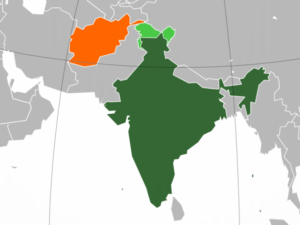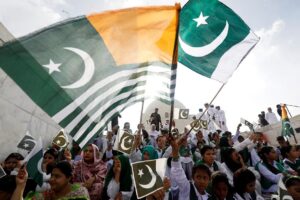The BRICS is a bloc of five burgeoning economies that have convened yearly summits to deliberate upon matters of shared concern and foster collaborative efforts. The BRICS summit of 2023 took place in Johannesburg, South Africa, and saw the participation of six more invitees: Argentina, Egypt, Ethiopia, Iran, Saudi Arabia, and the United Arab Emirates.
The BRICS and G7 are distinct blocs of nations that possess different objectives and agendas. The BRICS is a group of five developing economies that want to exert more influence in global affairs. The G7 consists of seven highly developed democratic nations that engage in the synchronization of their policies about economic, security, and environmental matters. The BRICS places its emphasis on trade, investment, infrastructure development, energy, technology, and security for developing economies. The G7 focuses on democracy, human rights, climate change, health, and security. These organizations exhibit a lack of reciprocal exclusivity and often engage in interactions. Nonetheless, these groups possess distinct interests and viewpoints, which may potentially give rise to both conflicts and opportunities for collaboration. The BRICS are often seen as a prospective competitor to the G7 in influencing the global order.
These groups have varying influences on global governance. These platforms facilitate cooperation among prominent economies and regions around the globe. These blocs have a significant effect on the norms and regulations that govern the international system. These entities possess the ability to influence the agenda and results of several other multilateral forums and organizations, including the United Nations, the International Monetary Fund, the World Bank, and the World Trade Organization. However, the BRICS alliance has shown the ability to represent the multifaceted nature and intricate dynamics of the global geopolitical landscape. The BRICS have distinct interests, opinions, and values for emerging nations with diverse regional and cultural backgrounds.
In recent times, the BRICS bloc has facilitated avenues for the involvement of emerging nations in global governance processes, enabling their participation in decision-making and fostering international collaboration. The BRICS has sent invitations to over 40 nations to participate in its platform. Additionally, the BRICS has successfully formed its own development bank and contingency reserve mechanism, aimed at assisting in infrastructure development and crisis management in the Global South. Before this, the G7 had committed to providing billions of doses of COVID-19 vaccinations to nations with low- and middle-income states. Additionally, they expressed their intention to assist in terms of debt reduction and climate funding for particularly susceptible countries.
Furthermore, the growth of BRICS serves as a means to augment economic and strategic collaboration inside the organization. The BRICS nations have undertaken many projects aimed at enhancing their trade, investment, infrastructure, energy, technological, and security collaborations. Several examples of initiatives within the BRICS framework include the New Development Bank (NDB), the Contingent Reserve Arrangement (CRA), the BRICS Business Council, the BRICS Cable Network, the BRICS Vaccine Research Center, and the BRICS Counter-Terrorism Strategy. The newly invited individuals have the potential to make valuable contributions to these efforts and also stand to gain benefits from their involvement.
The significance of BRICS in 2023 within the context of present global power geopolitics may be analyzed from several vantage points. The rise of the BRICS is indicative of the group’s aspiration to establish an alternative global framework that poses a challenge to the prevailing Western-dominated international system. Furthermore, the recently extended invitations are indicative of the inclusion of very prominent and vibrant nations from several areas, including the Middle East, Africa, and Latin America. The variety of viewpoints and goals that its member countries present enrich the BRICS platform. These include Iran’s nuclear agreement, Saudi Arabia’s rivalry with Turkey, Egypt’s position within the African Union, Ethiopia’s struggle with Egypt and Sudan over the Nile dam, Argentina’s financial crisis, and the United Arab Emirates’ participation in Yemen.
The growth of the BRICS group provides an opportunity to assess its level of cohesiveness and unanimity. The BRICS nations exhibit variations in terms of their political systems, development patterns, cultural origins, and foreign policy agendas. Additionally, they encounter many obstacles and conflicts, both internally and externally, including those that arise inside their societies or in other nations. An example of territorial disagreement may be seen between India and China, which reached a critical juncture resulting in a fatal confrontation in the year 2020. Brazil and South Africa have had significant challenges in managing the COVID-19 pandemic and mitigating its associated economic and societal consequences. Russia has seen punitive measures and estrangement from Western nations due to its annexation of Crimea and its engagement in conflicts in Syria and Ukraine.
From a geopolitical perspective, it is evident that Russia and China have assumed contrasting positions in the United States. As a strategic response to the perceived threat that China poses, India has been steadily aligning itself with the United States in recent years. South Africa and Brazil sometimes exercise an anti-American stance while concurrently maintaining significant economic and political interdependence with the United States. The fact that the three aforementioned nations are democracies, whereas Russia and China are autocracies, is not a mere coincidence. The BRICS nations are experiencing a growing number of internal issues, leading to divisions among them. There is a growing trend of China and India emerging as rivals in their pursuit of regional dominance, as India aligns itself with Japan and other nations in forming alliances with the United States. The commonality among the prospective BRICS members lies in their shared desire to enhance their ties with China. The actors involved believe that pursuing this course of action will increase their bargaining power with the United States, which is the driving force behind it.
The leaders of Saudi Arabia and Egypt have interests in a Chinese-led coalition that opposes democratic principles, aiming to establish lasting legitimacy and stability for autocratic governance against external pressures for democracy originating from Western nations. Iran, a recent addition to the BRICS, is steadily strengthening its ties with Russia. China’s viewpoint places significant importance on the inclusion of energy producers in the Middle East. China is may consider the possibility of engaging in military action against Taiwan. China’s leadership is anticipated to engage in war scenarios, including both the physical battleground in the Indo-Pacific region and the implementation of sanctions. In the given context, the tight partnership between China and Iran, Saudi Arabia, and the United Arab Emirates has significant significance.
However, after the G20, it is evident that the current geopolitical landscape is seeing an escalation of tensions between China and the other states, while the possibility of a confrontation between Iran and the Gulf nations looms on the horizon. The sensitive nature of maintaining a balance between the interests of the aspirants and China is expected to persist under the BRICS framework. The likelihood of China achieving the formation of a globally significant coalition with the ability to take collective action from a heterogeneous group of nations is very low. However, it is important to acknowledge that this expansion may also give rise to increased discord and factionalism. Hence, the inquiry persists about the extent to which the BRICS nations can establish a shared vision and agenda for their collaborative efforts. In the future, the escalating tensions among BRICS members may pose significant challenges to preserving a sense of cohesion at meetings.
In conclusion, the BRICS nations have been campaigning for a global governance system that is multipolar and inclusive, aiming to represent the diverse interests of the developing world. The growth of the BRICS is indicative of shifting geopolitical dynamics and the emergence of new regional actors.
(The views expressed in this article belong only to the author and do not necessarily reflect the views of The Global Politico)







